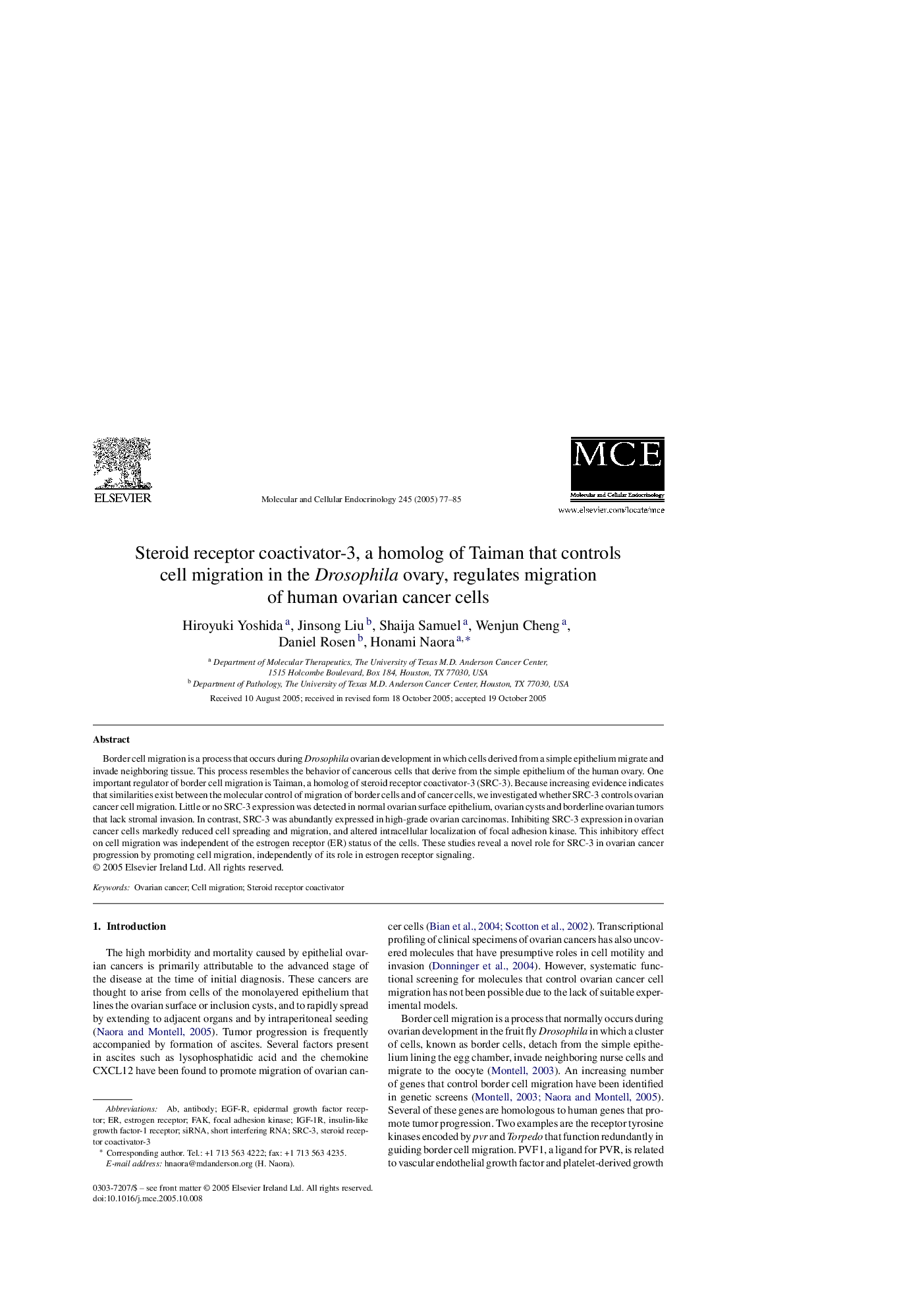| Article ID | Journal | Published Year | Pages | File Type |
|---|---|---|---|---|
| 9914858 | Molecular and Cellular Endocrinology | 2005 | 9 Pages |
Abstract
Border cell migration is a process that occurs during Drosophila ovarian development in which cells derived from a simple epithelium migrate and invade neighboring tissue. This process resembles the behavior of cancerous cells that derive from the simple epithelium of the human ovary. One important regulator of border cell migration is Taiman, a homolog of steroid receptor coactivator-3 (SRC-3). Because increasing evidence indicates that similarities exist between the molecular control of migration of border cells and of cancer cells, we investigated whether SRC-3 controls ovarian cancer cell migration. Little or no SRC-3 expression was detected in normal ovarian surface epithelium, ovarian cysts and borderline ovarian tumors that lack stromal invasion. In contrast, SRC-3 was abundantly expressed in high-grade ovarian carcinomas. Inhibiting SRC-3 expression in ovarian cancer cells markedly reduced cell spreading and migration, and altered intracellular localization of focal adhesion kinase. This inhibitory effect on cell migration was independent of the estrogen receptor (ER) status of the cells. These studies reveal a novel role for SRC-3 in ovarian cancer progression by promoting cell migration, independently of its role in estrogen receptor signaling.
Keywords
Related Topics
Life Sciences
Biochemistry, Genetics and Molecular Biology
Cell Biology
Authors
Hiroyuki Yoshida, Jinsong Liu, Shaija Samuel, Wenjun Cheng, Daniel Rosen, Honami Naora,
